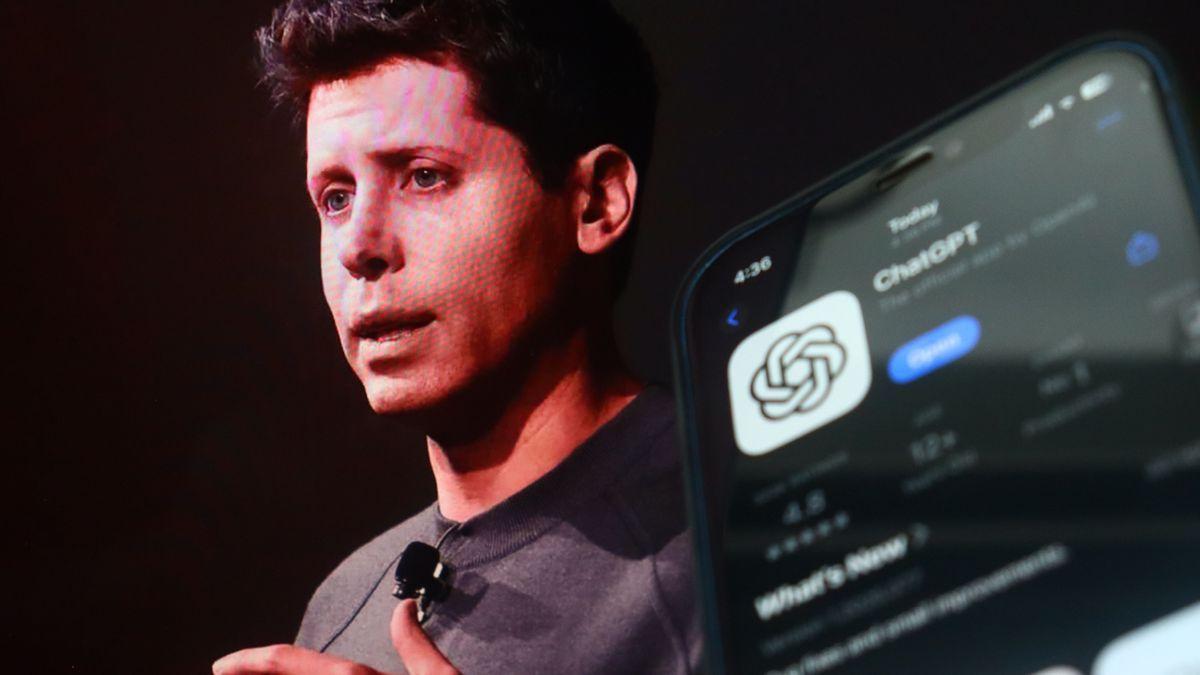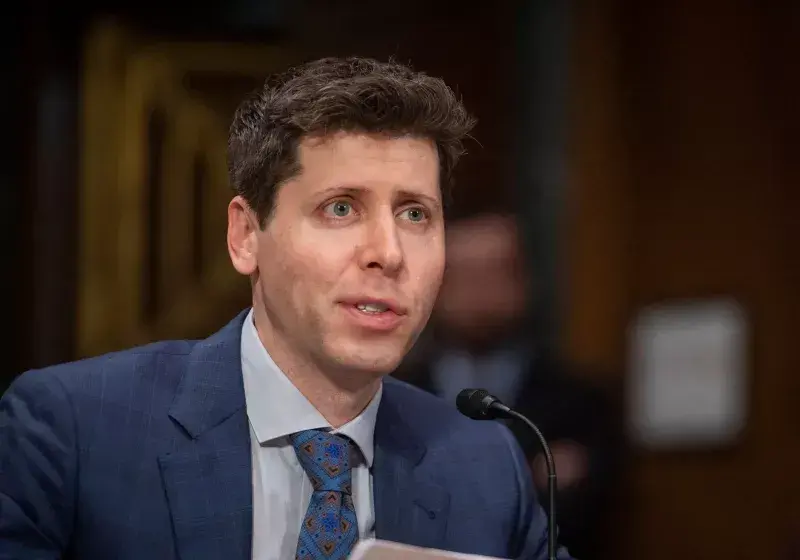Sam Altman Predicts Rapid AI Progress, Compares to Moore's Law
2 Sources
2 Sources
[1]
Sam Altman says AI is progressing faster than Moore's law as he predicts AGI is 'coming into view', and it's leaving me worried about the future
We've got about a year before everything changes, according to Mr Altman Moore's law, named after Gordon E. Moore, the co-founder of Intel, states that the number of components on a single chip doubles every two years at minimal cost. It's not exactly hard science, but his simple observation of how rapidly chip technology was progressing back in 1965, has proved to be pretty useful for predicting where technology will be in the years to come. In his latest blog post, Sam Altman, CEO of OpenAI, makers of ChatGPT, just stated that ' Moore's law changed the world at 2x every 18 months; this is unbelievably stronger. ' Altman was referring to the massive price drop we've seen for AI usage. For developers, this is measured in token cost, and the token cost to use AI has been falling about 10x every 12 months. Between early 2023 to mid-2024, the price per token for using ChatGPT has dropped about 150x. Technically, Altman got it wrong by writing "18 months" instead of "about two years". The 18 months figure is a common misquote since there was a separate prediction by Moore's colleague, Intel Executive David House that Moore's Law would mean that chip performance would double every 18 months, with no increase in power consumption. So, a forgivable slip. However, Altman's point is that the falling cost of using AI is another indicator that artificial general intelligence (AGI) is "coming into view". AGI is an artificial intelligence that is on a par with, or smarter than, human intelligence, and developing it is the whole reason that companies like OpenAI exist because the benefits of AGI could be truly world-changing, despite the dangers that we keep getting warned about. It's worth reading the whole of Sam Altman's blog post because it very much reads like a warning that the future is coming sooner than we think and that we really start to need to prepare for how the world is going to change. Altman's predictions are certainly mind-blowing. His three key predictions for the immediate future are: Altman doesn't predict these changes happening in 2025, but since he's already gone on record saying that humanity will achieve AGI this year, the changes would appear to be right around the corner. His message is also that we have some tough choices coming up regarding AGI and how freely it should be used, because one possible future, "we can see is AI being used by authoritarian governments to control their population through mass surveillance and loss of autonomy." In Altman's vision, ensuring that the benefits of AGI are broadly distributed is critical to prevent this from happening. He ends with a quite astonishing prediction: "Anyone in 2035 should be able to marshall the intellectual capacity equivalent to everyone in 2025; everyone should have access to unlimited genius to direct however they can imagine." It's hard to know how to process the breadth of Altman's vision right now. Companies like OpenAI are committed to developing AGI, but the dangers inherent in who controls this technology are something that Altman is urging us to start considering and talking about right now.
[2]
OpenAI boss suggests there's the equivalent of Moore's law for AI and it's 'unbelievably stronger'
OpenAI boss Sam Altman has been merrily blogging away about his thoughts on AGI, or Artificial General Intelligence, and there's a lot of food for thought. A key takeaway, however, is his link between Moore's Law, and what he perceives to be the AI equivalent. Point two of his "three observations" regarding the oncoming AGI future discusses the idea that "the cost to use a given level of AI falls about 10x every 12 months, and lower prices lead to much more use." Altman goes on to say that Moore's law "changed the world at 2x every 18 months; this is unbelievably stronger." Moore's Law is defined as the principle that the speed and capability of computers can be expected to double every two years, due to the increase in transistor counts between generations of hardware, for a minimal cost. As a guiding principle for measuring chip development it's widely regarded to be no longer true, with Nvidia CEO Jensen Huang often noting it's dead and buried, although it's still often cited as a frame of reference for technological development as a whole. However, AI development appears to have moved at a relentless pace in recent years, and OpenAI has been at the forefront of it with various iterations of its ChatGPT AI chatbot. According to Altman, Artificial General Intelligence is the next step, and is already moving apace -- and if his observations prove accurate, the gigantic price drops in relation to AI usage over time might be a suitable metric to define AI development in a similar way. Altman's Law then, perhaps. Or so he likely hopes. Moore's Law was named after an observation by Gordon Moore, an Intel co-founder who observed in 1965 that the number of components in an integrated circuit was doubling every year, before adjusting his theory in 1975 to doubling every two years. It became a guiding principle in the semiconductor industry to ensure future-resistant long term planning, although has fallen out of favor since. The real meat and potatoes of Altman's observations surrounds what he sees as the AGI-led future to come, and how it may help unlock the creativity and productivity of us mere worker drones due to what he sees as the fabulous potential of the tech. Still, if you happen to create a new law while musing away on your blog, that's a happy accident, isn't it? Presumably he didn't need any AI help to do it, either. There's hope for us all then.
Share
Share
Copy Link
OpenAI CEO Sam Altman discusses the accelerating pace of AI development, drawing parallels to Moore's Law and predicting the imminent arrival of AGI with significant societal implications.

Sam Altman's AI Progress Observations
OpenAI CEO Sam Altman has recently shared his thoughts on the rapid advancement of artificial intelligence (AI) in a blog post, drawing parallels to Moore's Law and predicting the imminent arrival of Artificial General Intelligence (AGI). Altman's observations have sparked discussions about the future of AI and its potential impact on society
1
2
.AI Development Outpacing Moore's Law
Altman claims that AI progress is occurring at a rate that surpasses Moore's Law, a principle that has long been used to measure technological advancement in the semiconductor industry. While Moore's Law suggests that the number of transistors on a microchip doubles about every two years, Altman states that the cost of using AI is falling by a factor of 10 every 12 months
1
.To illustrate this point, Altman notes that between early 2023 and mid-2024, the price per token for using ChatGPT has dropped by approximately 150 times
1
. This rapid decrease in cost is seen as an indicator of the accelerating pace of AI development.Predictions for AGI and Societal Impact
Altman's blog post outlines several key predictions for the near future:
- AGI is "coming into view" and could be achieved as soon as this year
1
. - The falling cost of AI usage will lead to increased adoption and integration into various aspects of life and work
2
. - By 2035, individuals may have access to "unlimited genius" equivalent to the intellectual capacity of everyone in 2025
1
.
Concerns and Challenges
While Altman's vision for AI progress is ambitious, he also raises concerns about the potential misuse of AGI:
- The risk of authoritarian governments using AI for mass surveillance and population control
1
. - The need for broad distribution of AGI benefits to prevent negative outcomes
1
. - The importance of preparing for significant societal changes that may occur as a result of AGI development
1
2
.
Related Stories
"Altman's Law" for AI Development
Some observers have suggested that Altman's observations about the falling costs of AI usage could become a new metric for measuring AI progress, similar to how Moore's Law has been used in the semiconductor industry. This potential new principle has been informally dubbed "Altman's Law"
2
.Industry Perspectives
It's worth noting that while Altman's predictions are generating significant interest, they are not universally accepted within the tech industry. For instance, Nvidia CEO Jensen Huang has previously stated that Moore's Law is no longer applicable to current technological development
2
.As AI continues to evolve rapidly, the tech community and society at large will need to grapple with the implications of these advancements and work towards ensuring that the benefits of AGI are responsibly distributed and managed.
References
Summarized by
Navi
Related Stories
Sam Altman Predicts Transformative AI Future: Superintelligence and Robotics by 2030
11 Jun 2025•Technology

Sam Altman Predicts Superintelligent AI Within a Few Years, Sparking Debate
24 Sept 2024

Sam Altman Predicts AI Superintelligence by 2030, Forecasts Significant Economic Impact
26 Sept 2025•Technology

Recent Highlights
1
ByteDance's Seedance 2.0 AI video generator triggers copyright infringement battle with Hollywood
Policy and Regulation

2
Demis Hassabis predicts AGI in 5-8 years, sees new golden era transforming medicine and science
Technology

3
Nvidia and Meta forge massive chip deal as computing power demands reshape AI infrastructure
Technology





